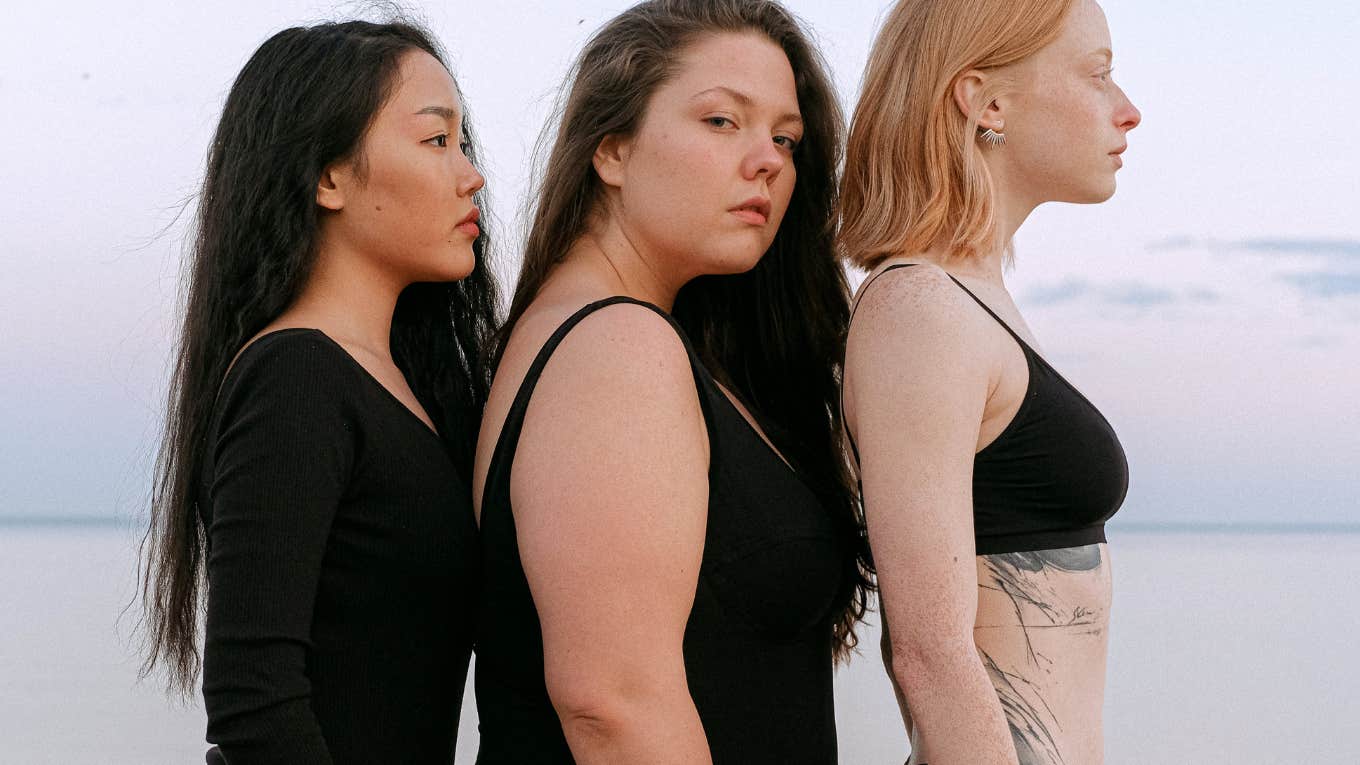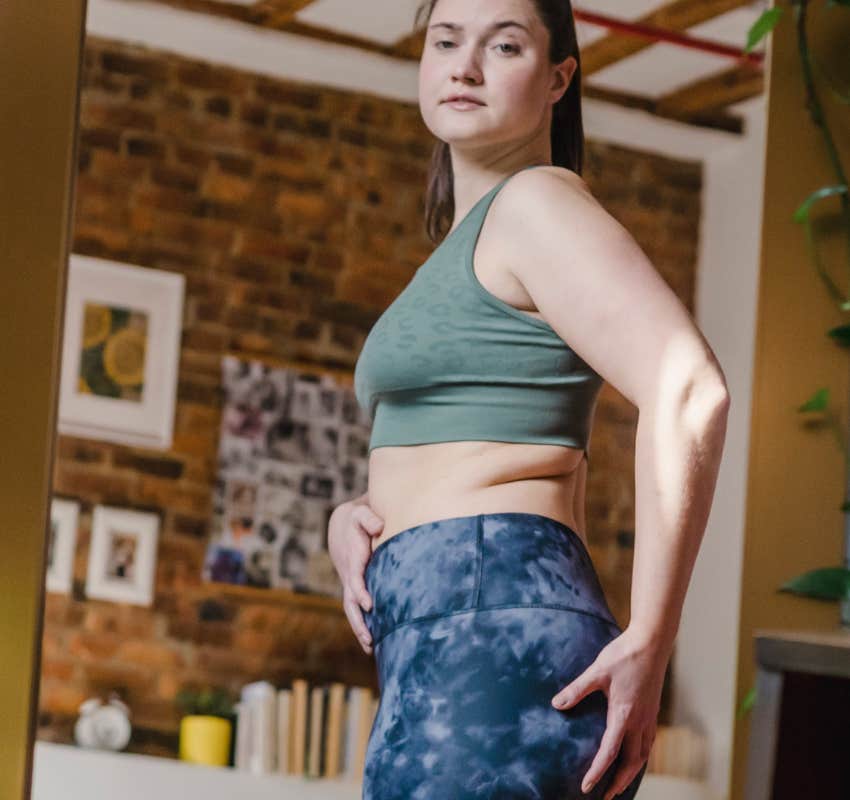Hollywood Tried To Convince Us These Body Types Were Abnormal — Now, We Know Better
All bodies are worthy, valid, and beautiful.
 Anna Shvets / Pexels
Anna Shvets / Pexels The late 90s and early 2000s were pivotal points in contemporary pop culture. The increased impact of teen performers mixed with intense paparazzi presence created a tornado-like focus on women’s bodies, both for fictional characters and actual living, breathing, people.
Hollywood convinced us that certain body types were abnormal — only now, we know better.
A thread on the subreddit r/popculturechat started a conversation on Hollywood's toxic interpretations of any body type that fell outside the archetype of thin, white, and blonde. The Reddit post was titled “Completely normal bodies that film and TV tried to convince us were ‘fat.’”
Examples of problematic representations of divergent body types included “Fat Monica,” played by Courteney Cox in a prosthetic fat suit. The past-version iteration of Monica was played for laughs, to show how awkward and unattractive the character was, contrasted with how much more successful and desirable she was as a thin person.
 Photo: Tim Samuel / Pexels
Photo: Tim Samuel / Pexels
The movie version of the 1996 book “Bridget Jones’ Diary” came out in 2001, acting as a peak early-aughts example of how pervasive diet culture was both onscreen and off.
Bridget Jones was on a constant diet, measuring how much weight she lost and gained in her daily journal entries, which coincided with which male characters found her attractive. The fact that Renée Zellweger gained weight to play Bridget Jones was a well-documented part of the movie’s press tour.
The show “Ugly Betty” featured America Ferrara as Betty Suarez, a character with glasses, braces, and a strikingly non-conformist sense of style, who was at distinct odds with the other female characters on the show. The tagline for the series was “Ugly is the new beautiful,” a not-so-subtle framework for the belief that anyone who didn’t fit into the era’s rigid beauty standards was, in fact, ugly.
The Hollywood gold-standard classification of thinness equating to beauty went beyond fictional characters, extending to how female performers were talked about offscreen.
The blowback from Britney Spears’ 2007 MTV VMAs performance focused exclusively on how fat she looked. Lady Gaga was criticized after her Super Bowl performance for — you guessed it — looking fat.
Every other magazine cover of the era featured a newly postpartum celebrity mom, announcing how she “bounced back” and lost the weight she’d gained in order to gestate a baby for nine months.
Anyone who came of age in the dawn of Y2K can speak to the harm caused by the way celebrities’ bodies were picked apart by the media.
As one person noted in the comments section of the Reddit post, “Growing up in the 2000s was honestly really traumatizing.” Someone else spoke to the fact that media representation of female celebrities focused on “not only convincing us they were ‘fat’ but convincing us that ‘fat’ equals ‘less than’ or unattractive or bad.”
That sentiment captures the crux of the issue of representation. We all have bodies that are valuable, loveable, and worthy, no matter what we look like.
Hollywood is far from being a perfect industry, yet there is way more inclusivity now than ever before.
The rise of social media influencers who use TikTok and Instagram to show their lived realities has helped shift the needle toward a more diverse landscape. Instead of high-fashion models with unattainable body types, we’re seeing teens and young adults celebrating their differences.
We are witnesses to the beauty of women with body hair, the magnificence of how age changes us, and the wonders of both pregnant and postpartum bodies.
Our society has made huge gains in the realms of body acceptance and body positivity. In calling out the ways representation has improved, we’re paving the way for even more positive change to come.
Alexandra Blogier is a writer on YourTango's news and entertainment team. She covers social issues, pop culture analysis and all things to do with the entertainment industry.
